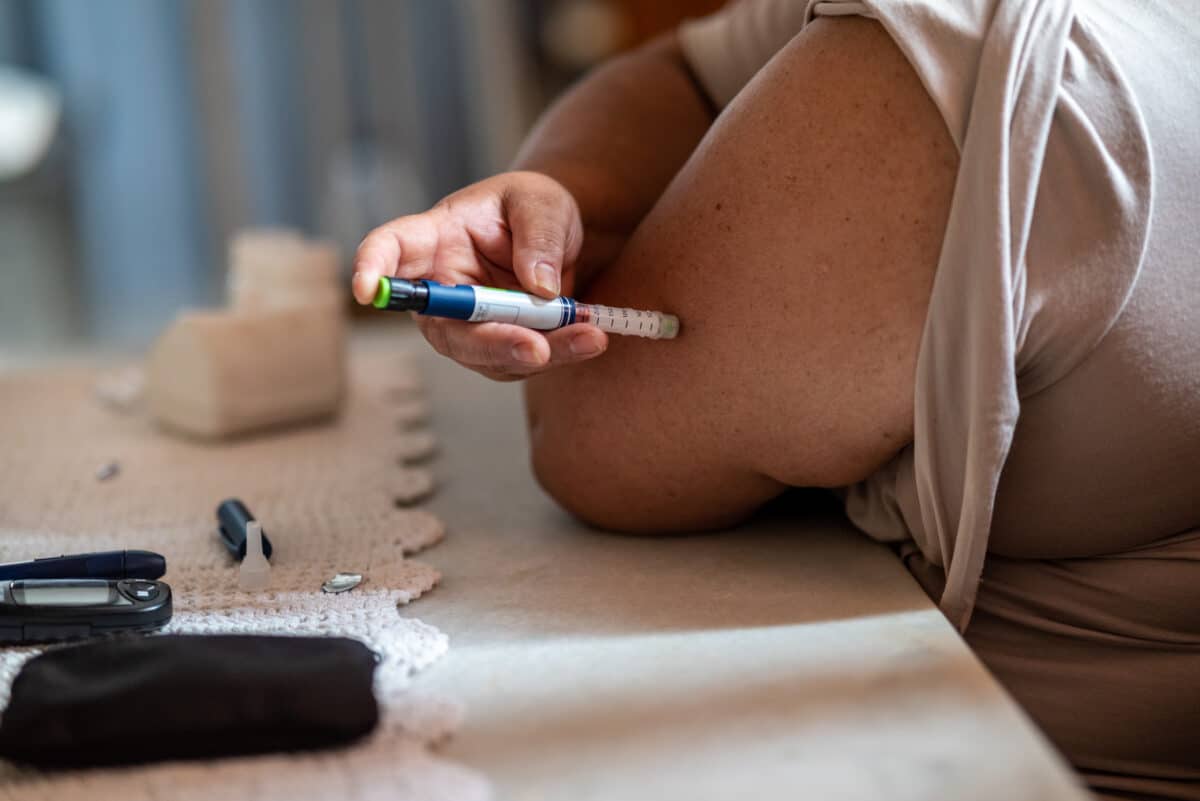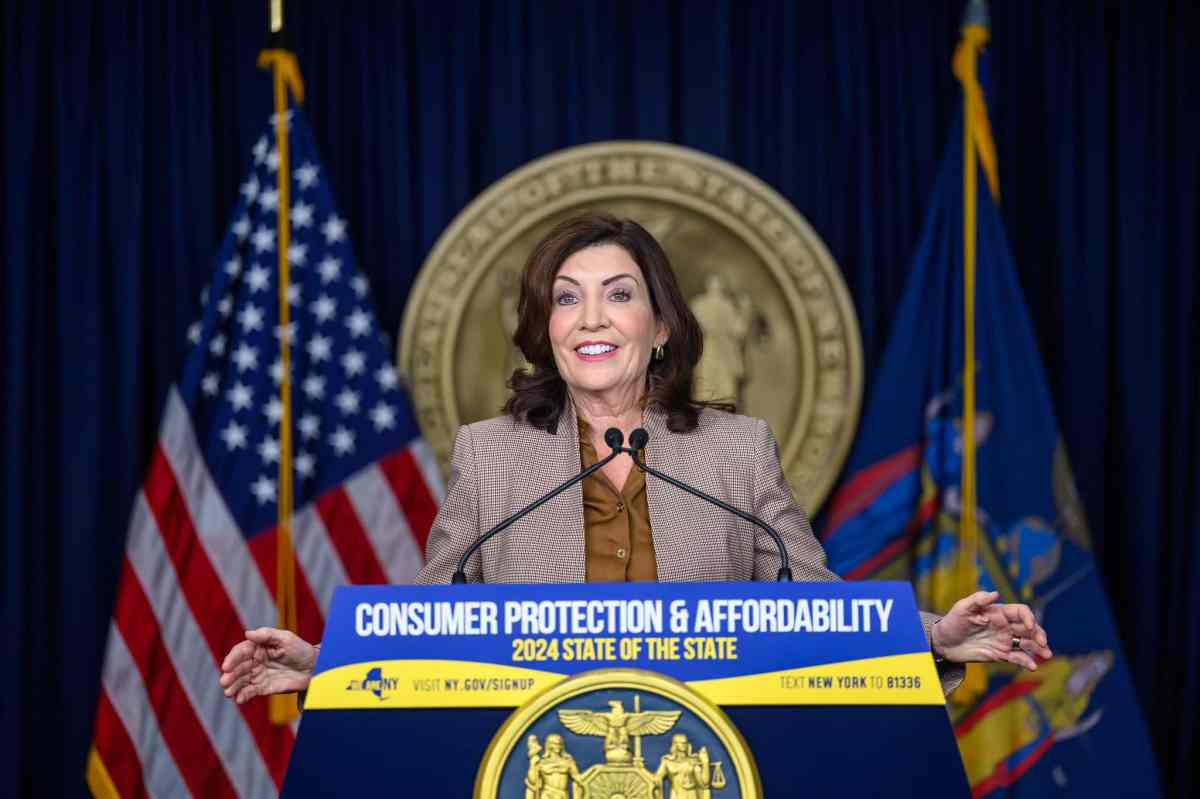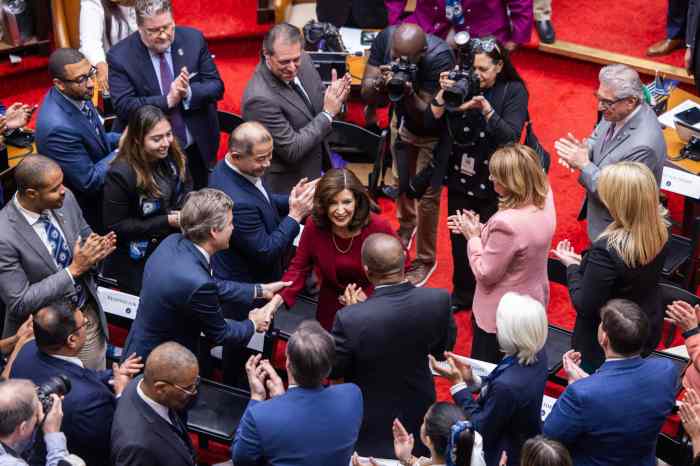Gov. Kathy Hochul on Tuesday proposed the elimination of co-payments for insulin in New York, part of a wide-ranging consumer protection package unveiled ahead of her State of the State address next week.
More than 1.5 million New Yorkers have diabetes, according to the governor’s office. But the insulin many diabetics need to survive is the subject of extravagant price gouging in the United States by drugmakers; a month’s supply can cost hundreds of dollars, and even with insurance the drug is still typically much more expensive in the U.S. than in other countries.
Insulin is so expensive in the U.S. that about 1 in 5 diabetic adults say they ration it to save money, according to a 2021 survey from the Annals of Internal Medicine.
“You shouldn’t face financial ruin if you’re faced with a chronic illness like diabetes,” Hochul said at a press conference in Manhattan on Tuesday.
The governor said that she would propose legislation to completely ban cost-sharing for insulin in the state, preventing diabetic New Yorkers from having to pay out-of-pocket for it. New York currently caps insulin co-pays at $100 per month.
Twenty-five states cap insulin co-pays to some degree, according to the American Diabetes Association, and the 2022 Inflation Reduction Act capped co-pays at $35 for all Medicare enrollees nationwide.
In 2023, under pressure from state and national governments as well as the public, three of the largest insulin producers — Eli Lilly, Novo Nordisk, and Sanofi — agreed to slash the price of insulin and cap monthly out-of-pocket costs.


Still, Hochul says New York’s program would be “the most expansive insulin cost-sharing prohibition in the nation.”
The insulin proposal was just one of several consumer protection initiatives Hochul unveiled Tuesday ahead of her State of the State Address, which she will deliver on Tuesday, Jan. 9 at the state Capitol in Albany.
The governor also proposed a significant expansion to the state’s medical and disability leave benefits. Benefits have remained the same for 35 years, and reflect 1980s prices with a cap of just $170 per week. Hochul said she would propose raising the benefit cap to $1,250 per week, with workers entitled to 2/3 of their average weekly wage.
Furthermore, the governor said she would introduce legislation prohibiting hospitals from suing low-income New Yorkers to recover debt, with patients protected if they earn less than 400% of the federal poverty level — $58,320 for an individual and $120,000 for a family of four.
More than 700,000 New Yorkers have medical debt that’s been sent to a collection agency, according to the governor’s office — which Hochul says leads New Yorkers to forego seeking health care.
Hochul also said she would seek amendments to expand the state’s consumer protection law, prohibiting businesses from engaging in “abusive and unfair” business practices in addition to deceptive practices.
Current law protects consumers from unscrupulous actors who actively deceive them, but they have less recourse if they are simply ripped off or taken advantage of by sleazy operators who technically don’t lie to them.
Last year, a bill to do just that was “strongly opposed” by the Business Council of New York State, a lobbying group that said the definitions were “subjective.” Advocates say the measure would provide consumers with much greater recourse against abusive practices by insurance companies, landlords, lenders, and debt collectors, among others.
“Today we’re putting those bad actors on notice,” said Hochul. “We’re coming after you. You’re done ripping New Yorkers off.”
Read more: Adams Threatens Legal Action Over Housing Voucher Dispute



































